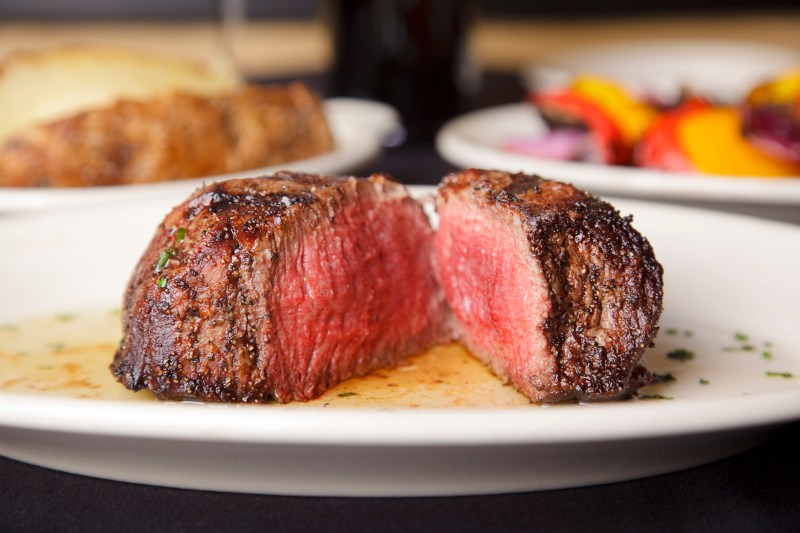It’s easy to forget that, at the end of the day, we are animals. We surround ourselves with high concepts and tremendous technology—to a point that we so often overlook our more instinctive ways. Well, in a weird kind of way, food and drink seem to bridge the gap between our most basic selves and our most evolved selves.
Just take salivating, something associated with a hungry tiger or infant child unable to exercise any control. It’s the stuff of cartoons and always-hungry characters like Wile E. Coyote. But there’s actually some pretty interesting science to it all.
It’s estimated that a typical human produces one-and-a-half liters of saliva a day. That’s more than 50 ounces, or, if you think in terms of beverages, three full pints of beer. That seems like a lot, but you’re not using it all at once. And the purpose is pretty clear: We need the added liquid to help break down all the things we consume. Saliva is tailor-made for the task, set up with special enzymes that help break down whatever it is we’re eating.

The advent of food porn suggests mouthwatering is real, if only mentally. If Homer Simpson has taught us anything, it’s that a donut or other piece of appetizing food will make us drool. In actuality, it’s more about being stimulated by food in general. That saliva is already there at the ready to help us chew, swallow, etc. But the presence of food—an aroma of broth, a whiff of deep-fried anything—can get our glands going. Something less tangible, like pretty much everything Bon Appétit has created visually in its magazine, may make us hungry, but it probably won’t make our mouths water. Or can it?
Bennett Barch is an otolaryngologist based in the Pacific Northwest. If you don’t recognize the title, it essentially means ears, nose, and throat doctor. With the onset of COVID, Dr. Barch has been especially busy lately as the virus has been known to attack our senses. He reminds us that smell is a key aspect of taste. We actually only taste salty, sweet, sour, bitter, and umami,” he says. “While in contrast, there are hundreds of unique smell receptors. Saliva helps facilitate taste on our tongue primarily through the moisture it provides to food.”
Barch says saliva is primarily water, but there are some other important things mixed in. “It also contains salts and organic compounds such as enzymes,” he says. “Amylase and Ptyalin are enzymes that help in the breakdown of sugars. Saliva also provides moisturization and lubrication to help the food go down.”
Interestingly, as Barch notes, it’s the parasympathetic nervous system that inspired saliva creation. This is also known as the rest and digestive side of our wiring. The fight or flight side, also known as the sympathetic nervous system, actually decreases saliva production. Turns out saliva is called upon for one kind of survival (eating) and turned away for another. And speaking of production, it’s all about those salivary glands, which are all around your mouth.
“The two largest parotid glands are located on the sides of the face,” Barch says. “Two smaller submandibular glands are located under the jawline. Even smaller of the sublingual glands located under the tongue and in fact the entire mouth is lined with minor salivary glands as well.”
It’s no wonder you’re turning out so much saliva every day. But in truth, it’s tied more directly to food and instinctive hunger than any specific item. Barch offers a simple prompt to witness nature at work: Imagine something sour. For some, just the thought will activate saliva production (although try the lemon test, just for fun). It may take a more vivid imagination to create additional saliva without something sour actually present, but it can happen.
So food can activate a mouth-watering sensation, especially when it’s there and about to be eaten. But even thoughts of such a thing, for some, will prompt more saliva. We won’t blame you if the photo of the steak above wets the mouth a bit. But it’s likely more probable that the fragrance of such a thing (again, such a key factor in taste) will do that. Regardless, you now have the best excuse to drool ever and it’s called science.
Mouthwatering is more than a term we like to attach to the foods we like. It’s a fascinating phenomenon that keeps us putting fuel in the tank, properly and efficiently.


